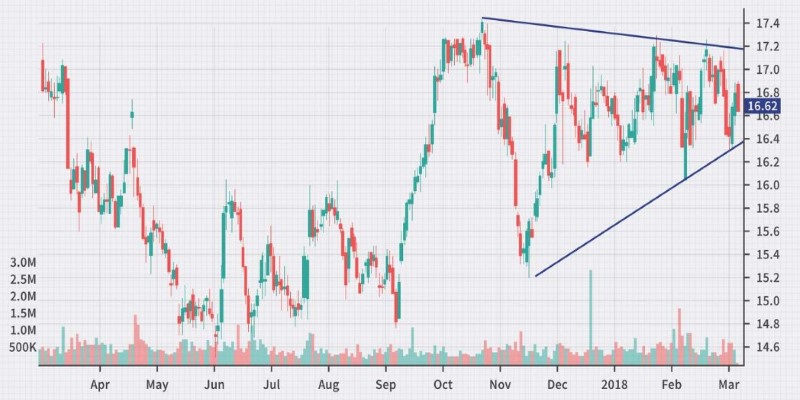5 Essential Social Marketing Tips for Fintech Startups in 2024
Sep 08, 2024 By Elva Flynn
The FinTech business is growing rapidly. According to the statistics, between 2015 and 2016, global FinTech venture capital investment rose 11%. Due to this increase, global investors invested $17.4 billion in FinTech startups in 2016 alone, and the numbers have been increasing steadfastly ever since. With new funding and startups entering the financial technology sector, FinTech companies need effective marketing tactics. Effective marketing can help these companies grow and compete. However, many are confused about which social marketing methods are great for emerging financial technology companies. With that in mind, lets take a look at five essential marketing tips that fintech companies can use.
Social Media Optimization
Social media is especially effective for reaching millennials, an important FinTech demographic. Engaging tech-savvy millennials requires using social media, where 86% are active. Multiple tactics should be used to optimize social media accounts and their impact, such as:
Make Detailed Profiles
To increase traffic and user access, include relevant keywords and links on your website or app. Post useful and engaging information regularly, as this can contain instructive materials, industry updates, tips, and new features or products. Engaging content informs and engages users coming to your website or app. You can also use infographics, videos, and interactive postings to attract attention, as visual content performs better on social marketing and boosts engagement.
Engage and Interact
Engagement is another important part of standard social market optimization. Always respond to comments, emails, and mentions to establish a community. Running social media competitions, polls, or campaigns to increase visibility and interaction is one of the best ways to keep your followers and users engaged. Responding to comments, emails, and mentions builds community and shows your brand appreciates user involvement. Social media marketing packages, contests, and surveys can also boost visibility and engagement.
Start Blogging
Blogging greatly improves marketing ROI. HubSpot reports that marketers who emphasize blogging see 13 times higher ROI. This statistic emphasizes the value of a well-maintained blog in FinTech marketing. Some benefits include:
It Informs Your Audience
One of the main benefits of blogging is educating your readers. Many people use blogs to learn about specialized topics. By sharing FinTech knowledge, you may answer basic inquiries, explain complicated ideas, and demonstrate your company's competence. This educational approach establishes your brand as a trusted source of financial technology and service information, attracting readers.
Increases Site Traffic
Website traffic can improve considerably with regular blog posts. If you optimize your blogs using keywords and SEO best practices, each new post can appear in search engine results. This enhanced visibility on the standard social market can draw more site visitors to examine your products and services.
Social Media Boosts Reach
Share your blog on social media to enhance its reach. Your content will reach more people and engage them where they are most active. Social media marketing packages include sharing, which can boost blog traffic, visibility, and brand engagement. It also encourages people to share your blog entries to expand your readership and online visibility.
Make YouTube Videos

YouTube allows you to reach more people, notably 18-to 34-year-olds, than any cable network in the US. Since millennials and other tech-savvy audiences love internet video, YouTube is ideal for engaging them. Here are some pointers and benefits for making content for YouTube:
Enjoyable Content
Videos can be more enjoyable than other content. Dynamic, visually appealing videos can engage your viewers better than static content. This engagement can boost audience retention and brand effect.
Tell Your Company Story
Create YouTube videos to demonstrate your company's numerous qualities. You can share your company's history and mission, behind-the-scenes footage, or product development and features. Your audience feels connected to such content, which boosts brand loyalty.
Make instructive videos on complex industry issues. You may make FinTech movies that explain financial ideas, offer money management advice, or show how to use your goods. This informative approach benefits viewers and establishes your firm as an expert.
Expand Your Audience
Consistent YouTube video production might grow your viewership. Every video you release can draw new viewers and engage existing ones. Update your channel with relevant and engaging material to keep your brand in the spotlight and stimulate viewer interaction. YouTube can help you reach younger, tech-savvy audiences and promote your company's narrative and expertise.
Utilize Analytics
Analytics are essential for evaluating marketing effectiveness. Hits, click-through rates, and engagement analytics can reveal successful techniques. This data lets you find winning strategies and optimize your marketing. To maximize outcomes, invest more resources in high-engagement content or channels and use strategies like:
See Patterns and Trends
Thorough analytics can reveal user behavior and campaign performance patterns. Understanding what resonates with your audience helps you refine your marketing efforts.
Optimize Strategy
Actionable insights from analytics help you improve your marketing plan. If certain content forms or topics increase traffic or conversions, you might prioritize them in your content strategy. Analytics can also help you identify underperforming methods and make improvements to avoid repeating mistakes.
Learn from Previous Mistakes
Analytics helps you learn from prior performance. Analyzing failed techniques enables you to learn from them and avoid repeating them. This proactive approach lets you improve your marketing and minimize inefficiencies, resulting in more successful campaigns and better budget allocation.
Use Data to Decide
Analytics guarantee that your marketing decisions are founded on facts, not assumptions. This data-driven approach improves marketing strategy accuracy and effectiveness, resulting in improved results and ROI.
Reach Out to Social Media Influencers

Influencer marketing on the standard social market can boost FinTech advertising multifold. Due to their credibility and loyalty, influencers are effective allies for reaching your target audience. A poll found that 80% of marketers think social media marketing packages, including influencers, help boost brand exposure and engagement. Here are some pointers to keep in mind when doing influencer marketing are:
Find Relevant Influencers
Many FinTech influencers have large followings. Their expertise in financial technology and related areas makes them useful for targeting a certain population. Find influencers whose audience matches yours to target the proper demographic with your campaign.
Reach Specific Audiences
Influencers have engaged interest-specific audiences on social marketing. Partnering with FinTech influencers lets you reach financial technology enthusiasts. This focused strategy boosts marketing relevance and impact.
Increase Your Reach
Using the standard social market influencers can greatly increase your audience. Influencers' followers may share and interact with the material, boosting brand awareness and drawing new customers.

Methods to Efficiently Cash Out Your Life Insurance Policy

Unintended Harm: Is Fraud Prevention Hurting Financial Inclusion?

Bear Flag Pattern: A Step-by-Step Guide for Navigating Bearish Markets

Buy or Sell Stocks

Treasury Calls for More Oversight on Bank-Fintech Collaborations

A Complete Guide About What Are Core Assets?

Business Equity Loans Explained: Which Option Suits Your Needs

How to Categorize Your Business Expenses?

Unlocking the Power of the Symmetrical Triangle Pattern in Trading

